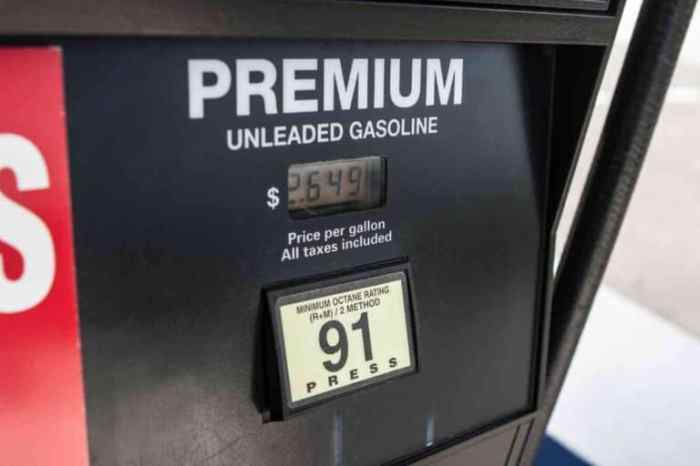How to Get the Most Out of Your Toyota 4Runner’s Fuel Efficiency – The Toyota 4Runner, known for its rugged capability and off-road prowess, isn’t typically lauded for its fuel economy. However, with a few strategic adjustments to your driving habits and vehicle maintenance, you can significantly improve your 4Runner’s gas mileage and save money at the pump. This comprehensive guide will delve into practical tips and techniques to help you get the most out of your 4Runner’s fuel efficiency.
Understanding Your 4Runner’s Fuel Consumption
Before diving into optimization strategies, it’s crucial to understand the factors influencing your 4Runner’s fuel economy. Several variables contribute to your vehicle’s MPG (miles per gallon), including:
- Driving Style: Aggressive acceleration, hard braking, and excessive idling significantly reduce fuel efficiency. Smooth, consistent driving is key.
- Terrain and Road Conditions: Driving uphill, off-roading, or navigating challenging road conditions like snow or ice will naturally decrease fuel economy.
- Vehicle Load: Carrying extra weight reduces fuel efficiency. The heavier your 4Runner, the harder the engine has to work.
- Tire Pressure: Under-inflated tires increase rolling resistance, leading to lower MPG. Maintaining proper tire pressure is crucial.
- Vehicle Maintenance: Regular maintenance, including oil changes, air filter replacements, and tune-ups, ensures optimal engine performance and fuel efficiency.
- Engine Size and Model Year: Different 4Runner models and engine sizes have varying fuel consumption rates. A V6 engine will generally consume more fuel than a 4-cylinder (though the 4Runner primarily uses V6 engines).
Practical Tips for Improving Fuel Efficiency
Driving Habits for Better MPG
Your driving style is perhaps the most significant factor you can control to improve fuel efficiency. Adopt these habits for optimal results:

Source: fourwheeltrends.com
- Smooth Acceleration and Braking: Avoid sudden acceleration and hard braking. Accelerate gradually and anticipate braking to minimize unnecessary fuel consumption.
- Maintain Consistent Speed: Cruising at a steady speed, especially on highways, is more fuel-efficient than constantly accelerating and decelerating. Use cruise control when appropriate.
- Minimize Idling: Turn off your engine if you’ll be stopped for more than a minute. Idling wastes fuel and contributes to unnecessary emissions.
- Plan Your Route: Avoid unnecessary stops and detours. Use GPS navigation to find the most efficient route.
- Avoid Excessive Use of Accessories: Power windows, air conditioning, and heated seats all consume energy, reducing fuel economy. Use them judiciously.
Vehicle Maintenance for Optimal Performance, How to Get the Most Out of Your Toyota 4Runner’s Fuel Efficiency
Regular maintenance is vital for maintaining your 4Runner’s fuel efficiency. Follow these guidelines:
- Regular Oil Changes: Use the recommended oil type and change interval specified in your owner’s manual. Dirty oil increases engine friction and reduces fuel efficiency.
- Air Filter Replacement: A clogged air filter restricts airflow to the engine, reducing performance and fuel economy. Replace it as recommended.
- Tire Pressure Check: Check your tire pressure regularly and inflate them to the recommended pressure listed in your owner’s manual or on the sticker located on your driver’s side doorjamb. Proper inflation significantly impacts fuel economy.
- Wheel Alignment: Improper wheel alignment can increase tire wear and reduce fuel efficiency. Get your wheels aligned regularly.
- Tune-Ups: Regular tune-ups ensure your engine is running optimally, contributing to better fuel economy.
Additional Fuel-Saving Strategies
- Reduce Cargo Weight: Remove any unnecessary items from your 4Runner to reduce its overall weight.
- Aerodynamics: While less impactful on an SUV like the 4Runner, minimizing wind resistance by removing roof racks or cargo carriers when not needed can marginally improve fuel economy.
- Use Fuel-Efficient Gasoline: Using higher-octane gasoline (like premium) is generally not recommended unless specifically required by your engine. Using the recommended grade of fuel will optimize your engine’s performance and fuel efficiency.
- Consider Eco-Driving Techniques: Many advanced driving techniques focus on smooth acceleration, deceleration, and consistent speeds to maximize fuel efficiency. Research these techniques online for more in-depth information.
Frequently Asked Questions (FAQ)
- Q: How often should I change my 4Runner’s oil? A: Refer to your owner’s manual for the recommended oil change interval. It typically varies based on driving conditions and mileage.
- Q: What is the impact of under-inflated tires on fuel efficiency? A: Under-inflated tires increase rolling resistance, requiring your engine to work harder and consuming more fuel. Proper inflation is crucial for optimal fuel economy.
- Q: Does using premium gasoline improve fuel economy in a 4Runner? A: Unless your 4Runner specifically requires premium fuel (as indicated in your owner’s manual), using regular gasoline will likely be just as efficient, if not more so. Premium fuel often offers no significant benefit for fuel economy in vehicles not designed for it.
- Q: How can I improve my 4Runner’s fuel economy on long trips? A: Maintain a consistent speed using cruise control, plan your route to avoid unnecessary stops, and minimize the use of accessories like air conditioning.
- Q: What are the signs of a problem that might be affecting my 4Runner’s fuel efficiency? A: Decreased MPG, unusual engine noises, poor acceleration, and illuminated check engine light are all potential indicators of underlying issues that could affect fuel economy. Consult a mechanic for diagnosis.
Resources
- FuelEconomy.gov
-Official US government website for fuel economy information. - Toyota.com
-Official Toyota website for owner’s manuals and vehicle specifications.
Call to Action: How To Get The Most Out Of Your Toyota 4Runner’s Fuel Efficiency
Start implementing these tips today to see noticeable improvements in your Toyota 4Runner’s fuel efficiency. Remember, consistent effort and mindful driving habits will yield the best results. Happy driving!
FAQ
What type of fuel is best for my Toyota 4Runner?
Consult your owner’s manual for the recommended fuel type. Generally, using the recommended octane rating will ensure optimal engine performance and fuel efficiency.
How often should I rotate my tires?

Source: fourwheeltrends.com
Tire rotation is crucial for even wear and optimal fuel economy. Refer to your owner’s manual for the recommended rotation schedule, typically every 5,000-8,000 miles.
Does driving style significantly impact fuel efficiency?
Yes, aggressive acceleration and hard braking drastically reduce fuel economy. Smooth, consistent driving is key to maximizing fuel efficiency.
Can I use fuel additives to improve fuel economy?
While some fuel additives claim to improve fuel efficiency, their effectiveness varies. It’s best to consult your owner’s manual before using any fuel additives.
